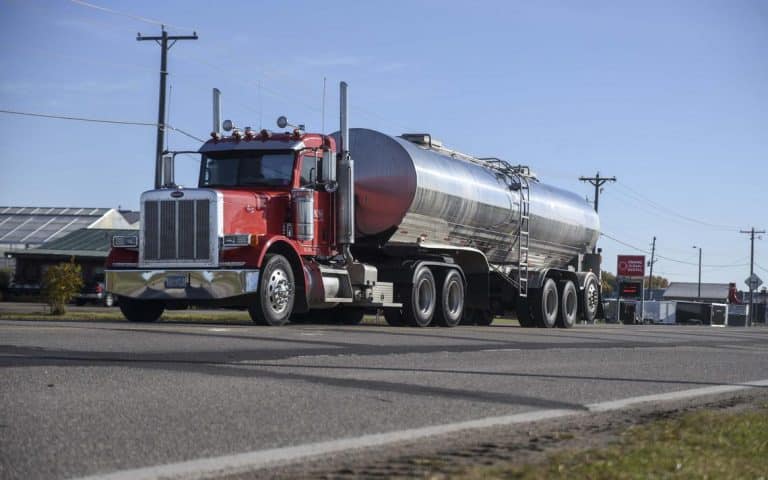Semitractor-trailers and other commercial vehicles keep the economy in west central Minnesota moving, transporting everything from building materials and groceries to corn and livestock. However, those trucks can’t drive themselves, leading to a huge need for drivers with Class A and B commercial driver’s licenses.
“It is really the backbone of the economy out here,” said Jason Duininck, vice president of business development for Duininck Inc. As a construction company, Duininck Inc. relies on commercial drivers to get supplies and materials to work sites across the state, and Duininck said every year it is a challenge to find enough drivers.
Nationally, there is a shortage of commercial truck drivers, numbering approximately 59,500 in 2019, according to the American Trucking Association. In Minnesota there were 4,500 vacant trucking positions.
“This shortage, if left unaddressed, will stifle economic health and development in Kandiyohi County and across this region,” said Aaron Backman, Kandiyohi County and City of Willmar Economic Development Commission executive director, speaking at an Oct. 10 meeting of the EDC joint operations board.
Commercial driver’s licenses are also needed for those wanting to drive school buses, garbage trucks and a wide range of other vehicles.
To help fill the need, Ridgewater College is reworking its CDL training program at the school. The new program will provide classroom instruction and behind-the-wheel training to teach students what they need to know to pass their license exams. The program will train for both Class A and Class B licenses and will also offer additional certification for hazardous materials drivers.
“My hope is to have a very robust program that will be in line with federal regulations,” said Sam Bowen, dean of Customized Training and Continuing Education at Ridgewater College.
Part of the drive toward the new Ridgewater program is changing federal regulations. Starting Feb. 7, 2020, all those taking the CDL exam will have to prove they successfully completed training through a provider listed in the Federal Motor Carrier Safety Administration training provider registry. Individuals will no longer be able to self-train to pass their test.
While the new rules will add a layer of accountability and safety in the trucking industry, both Duininck and Bowen have concerns about the impact it will have on people trying to get training.
“It is another barrier into the trucking industry,” Duininck said. “People want to drive commercial vehicles, but they can’t afford to take the test.”
It can also be a challenge to find open spots in training programs and the new rule could make it even more difficult.
“There is already a high demand,” Bowen said. “Our phones ring daily with people looking for training.”
Setting up the Ridgewater program will be costly. The two mobile training simulators Bowen hopes to purchase for the program will cost approximately $200,000 in total. While most of the funding will come from Ridgewater — and Bowen has also applied for grants — there is also an ongoing private fundraising effort. Bowen and Duininck, who is helping with the fundraising campaign, said they hope to raise $50,000 in private donations. The EDC approved donating $2,500 toward the goal and already the program has raised more than $30,000.
“The response of the business community is an indication of the need” for such a program, Duininck said.
The simulators will offer additional training to students who need a little bit more time to nail down skills. This frees up the actual trucks and instructors while also creating space for more students.
“The simulations will make them more competent when they get behind the wheel,” Bowen said.
Bowen and Duininck are also reaching out to potential drivers at an earlier age. Last year Ridgewater, along with Willmar Public Schools, Atwater-Cosmos-Grove City Schools and business leaders, put together a pilot program to help 18-year-old high school students earn their commercial driver’s licenses. While none of the students in the class were able to get their CDLs by the time the course ended, most were able to pass the CDL permit test. The hope is to offer the class again, but this time focus more on classroom instruction for both the permit test and the license exam, while also getting students in and around trucks.
“I think that is valuable,” Bowen said.
If all goes as planned, the revitalized Ridgewater CDL program will be up and running by January, just before the new training regulations go into effect. Since commercial vehicles are so imperative to the region’s economic success, there will most likely be plenty of people interested in the program.
“We have so much industry that employs trucks,” Bowen said. “The number of businesses that need Class A CDL drivers is amazing.”

